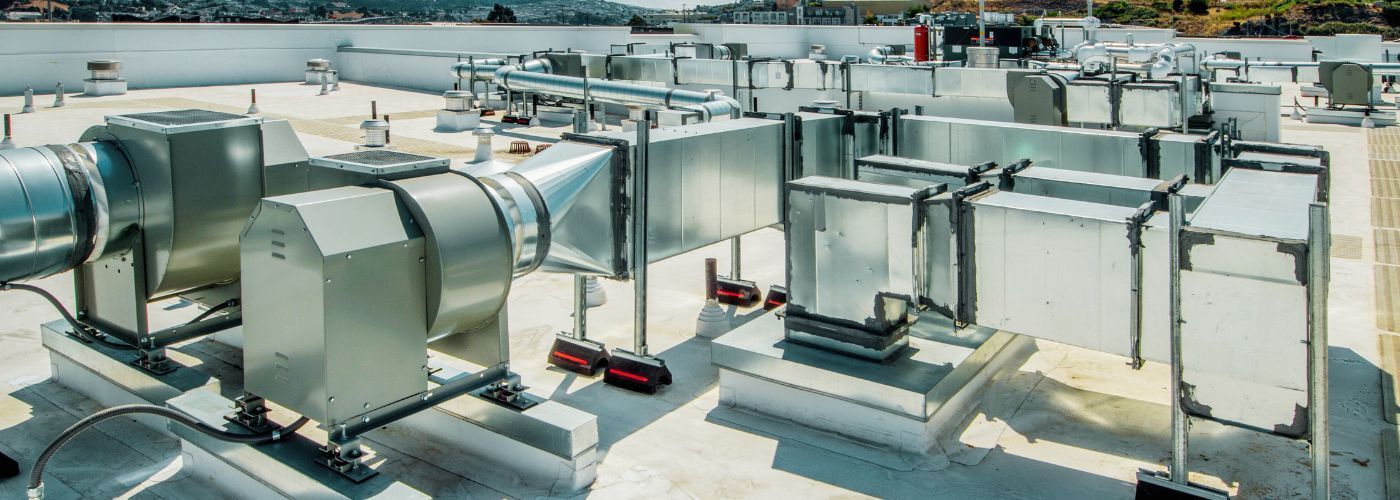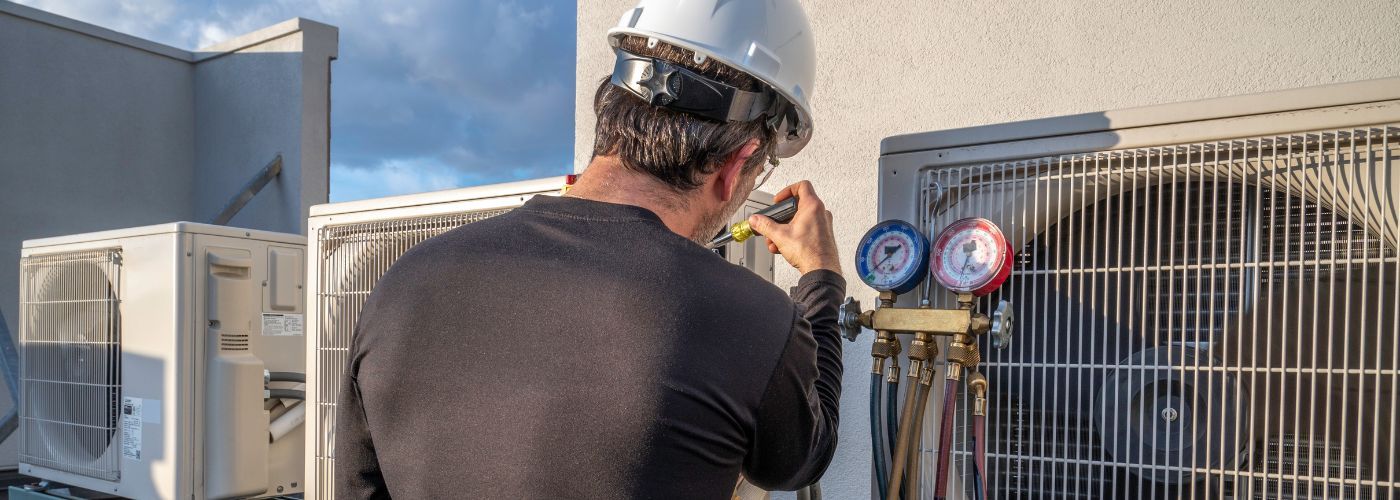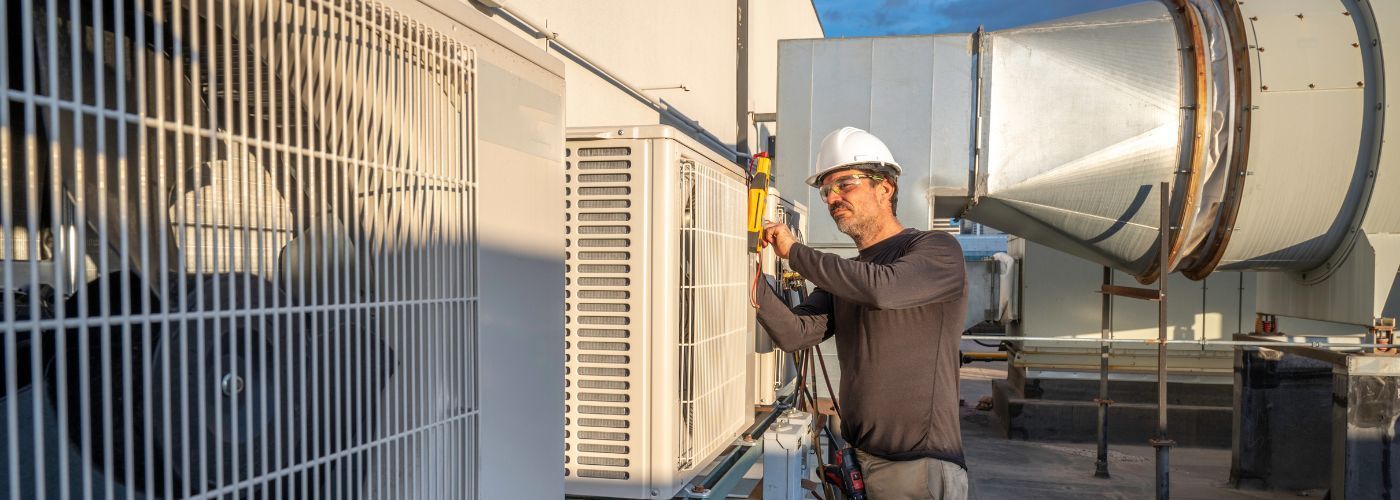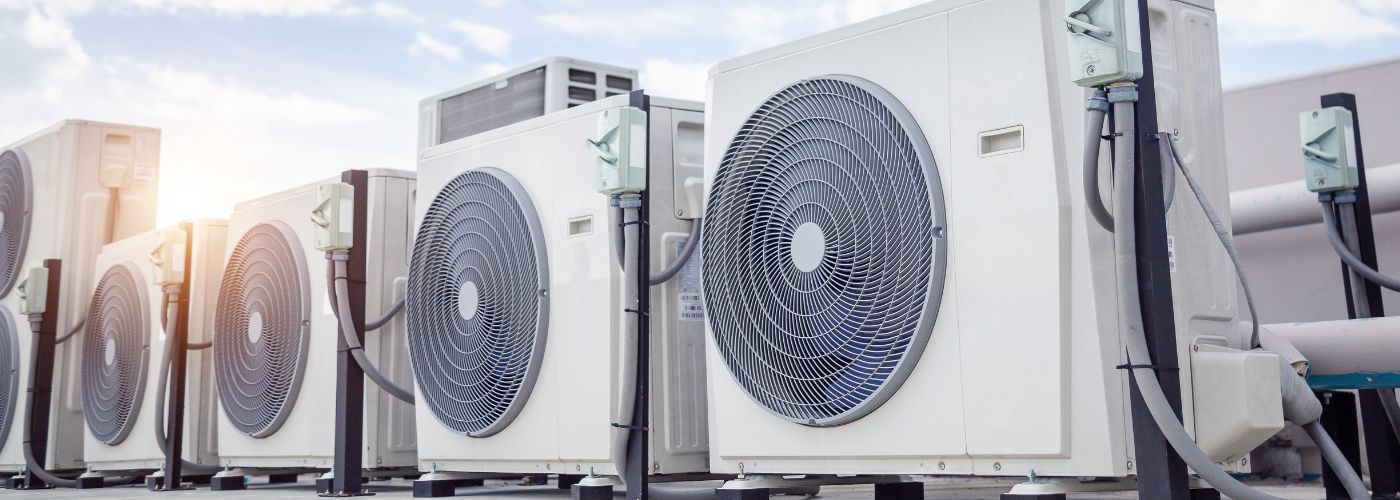How To Increase Your Building’s HVAC System Efficiency
CCER • January 11, 2021
5 Ways To Increase HVAC System Efficiency.

HVAC systems can initially be a big investment for business owners, so it’s crucial to maintain your system properly if you want to ensure longevity.
If you want to keep your HVAC system working optimally, it’s going to need some TLC. Here’s a list of five things you can do to increase the efficiency of your HVAC system:
5 Ways To Increase HVAC System Efficiency:
1. Improving Temperature Control:
According to New York Engineers, “The simplest way to deliver the right temperature is having HVAC systems that are properly sized and configured.” Furthermore, programmable controls and thermostats can help to take this a step further. According to Energy Star, “a programmable thermostat can save you about $180 every year in energy costs,” and that’s on the residential side of things. In terms of business, this could translate to thousands saved yearly as a result. Arista recommends taking the same. “Increase HVAC energy efficiency with an automated system that controls lights and the thermostat. You can always adjust so that the conditions go on and off at your schedule. Replacing old lights with compact fluorescent or LED bulbs will also help save power.” - src Aristair
2. Seal and Insulate:
Don’t lose that valuable conditioned air! Insulation is one of the most important facets of HVAC system efficiency. A poorly insulated building could result in the loss of a lot of your conditioned air. Adding insulation anywhere you suspect energy loss, such as pipes, outlets, or ducts is a great precautionary measure that will allow you to save energy. Sealing and insulating ducts can improve the efficiency of your heating and cooling system by as much as 20 percent. - src EnergyStar
3. Be Vigilant About Maintenance:
Being proactive versus reactive can make all the difference when it comes to the life span of your HVAC system. According to Mass Save, “companies with comprehensive planned and predictive maintenance programs can reduce total maintenance costs by as much as 50%.” Energy Star recommends cleaning evaporator and condenser air conditioning coils, as, “dirty coils reduce the system's ability to cool your home and cause the system to run longer, increasing energy costs and reducing the life of the equipment. Arista also encourages preserving airflow by keeping units clean and clear of dust, dirt, and debris. Changing your air filters monthly is also at the top of the list for routine maintenance. This is especially important during winter and summer months, when systems are working overtime to keep up. -
4. Variable Speed Drives (VSDs):
VSDs are a great way to help you control fan speeds, as most systems only have an on/off functionality. According to Mass Save, “Reducing fan speed by 20% can decrease energy use by 35%,” resulting in major savings for your business. - srs Massave
5. Make Education About HVAC Energy Efficiency a Priority:
Your employees or tenants should be up to speed on proper practices so that everyone can pitch in and do their part. Having a meeting, or sending out literature to keep everyone up to date and informed can have a tremendous impact on energy reduction. “Education will help them support your initiative for HVAC energy efficiency.” - src Aristair
At CCER, we specialize in coil cleaning, one of the many ways to keep your HVAC System functioning properly. If you would like more information on HVAC coil cleaning in the Denver area, give us a call at 720-224-3306 or contact us here.

Spring is the ideal time to tackle HVAC maintenance before demand spikes in the summer. At Common Cents Energy Recovery, we specialize in professional HVAC coil deep cleaning and system optimization, helping building owners and facility managers across Denver and the Front Range save money and prevent downtime.









